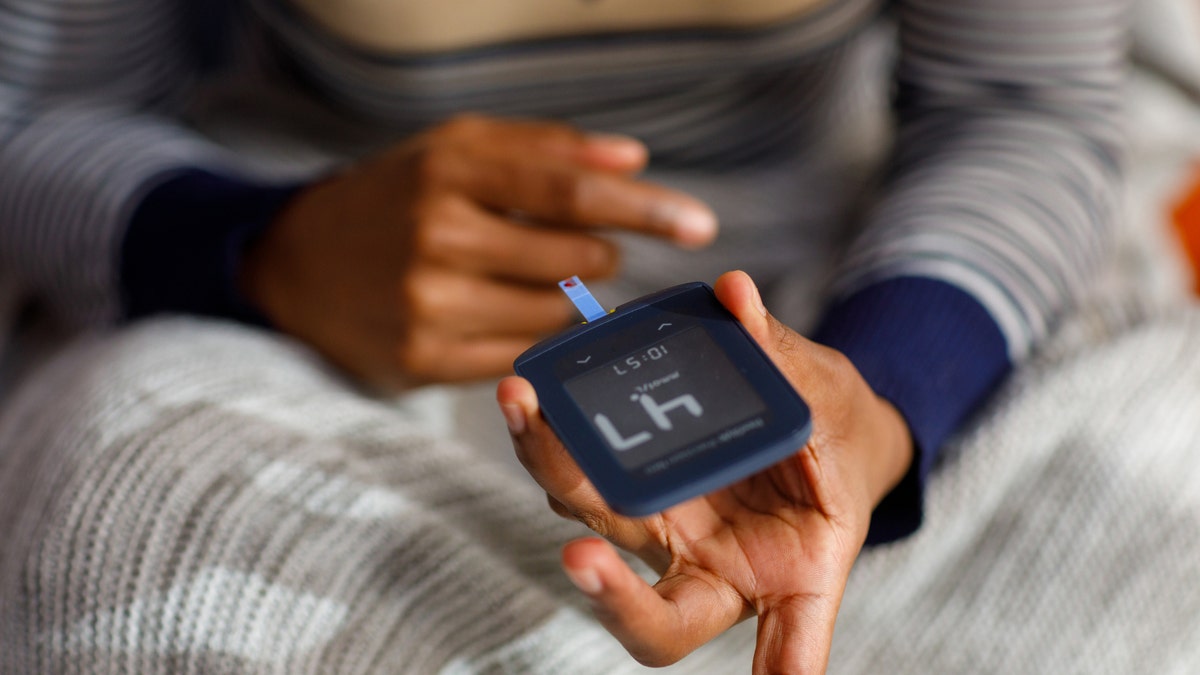Traditional guidance has been to eat three square meals a day — but a trending diet plan has some people eating just once.
Dubbed the One Meal a Day (OMAD) diet, it’s a form of intermittent fasting that involves eating all the day’s calories in a single meal, after 23 hours of fasting.
Dr. Jason Fung, a Canadian nephrologist (kidney specialist), is known to be an expert in intermittent fasting (IF). He spoke with Fox News Digital about the OMAD diet, which he described as a stricter version of IF.
‘I’M A HEART SURGEON, HERE’S WHAT YOU SHOULD KNOW ABOUT EGGS, YOUR HEART AND YOUR HEALTH‘
Both diets involve “time-restricted eating,” Fung noted — but with intermittent fasting, people can eat twice a day.
If you only eat once a day, the natural tendency will be to eat less overall, he said.

The One Meal a Day (OMAD) diet is a form of intermittent fasting that involves eating all of the day’s calories in a single meal, after 23 hours of fasting. (iStock)
The body is either in a state of storing calories or burning them, according to the expert.
When a person fasts for an extended period, the body begins to use fat for energy, which can actually decrease hunger, Fung said.
Who could benefit?
The two main health conditions that can greatly benefit from OMAD and intermittent fasting are weight loss and type 2 diabetes, according to Fung.
“Fasting really impacts weight and sugars, because that’s the way calories are stored – as sugar and fat,” he said.
FASTING-LIKE DIET COULD SLOW THE AGING PROCESS, STUDY SUGGESTS: ‘LIVING LONGER AND HEALTHIER’
Losing weight can potentially reduce the risk of heart disease, stroke and obesity-related cancers, the doctor noted, in addition to alleviating back pain, knee pain and pressure on joints.
“You can actually reverse your type 2 diabetes with intermittent fasting,” Fung said, referencing previously studies published by the National Institutes of Health and Diabetes Care.

When a person fasts for an extended period, the body begins to use fat for energy, which can actually decrease hunger, one expert said. (iStock)
Fung described how one of his patients who had diabetes for 15 years was able to discontinue his insulin medication after going on the OMAD diet three times a week for a month.
The patient is still not taking insulin and continues to fast regularly, though not as frequently, he added.
“You can actually reverse your type 2 diabetes with intermittent fasting.”
People with hypoglycemia who are not on blood glucose-lowering type 2 diabetes medications should still be able to follow the OMAD diet if they avoid highly refined carbohydrates, which can cause glucose levels to spike, said Fung.
He recommends eating whole, natural, unprocessed foods.

“Fasting really impacts weight and sugars, because that’s the way calories are stored – as sugar and fat,” one fasting expert told Fox News Digital. (iStock)
Fern Katzman, a Toronto-based clinical nutritionist, told Fox News Digital that she has seen patients with type 2 diabetes go off Metformin, an oral antidiabetic medication, or not have to go on it at all after engaging in intermittent fasting, or OMAD.
Katzman said people should have a reason to go on OMAD, such as to address medical issues or to bring down elevated blood sugar levels after a period of eating or drinking excessively.
HIDDEN BELLY FAT COULD SIGNAL ALZHEIMER’S DISEASE RISK 15 YEARS BEFORE SYMPTOMS SHOW UP, STUDY FINDS
“Insulin drives cravings,” she told Fox News Digital. “After you eat or drink a lot, your insulin spikes, and that makes you hungry.”
Katzman added, “The one thing that everybody tells me when they’ve done OMAD is that the cravings stop — and that is the key to any weight loss program.”

The two main health conditions that can greatly benefit from OMAD and intermittent fasting are weight loss and type 2 diabetes, an expert said. (iStock)
In addition to losing weight, Katzman said her patients have reported better digestion and decreased bloating on the OMAD diet because “sugar makes yeast and yeast bloats you.”
Patients have also noticed immediate improvements in their mood and energy levels on the diet, she added.
Katzman recommends filling up on vegetables, protein and grains, like quinoa and small amounts of brown rice.
‘Not for everyone’
Katzman cautioned that OMAD is “not for everyone” — it’s likely not a good choice for those who have eating disorders or are hypoglycemic, for example.
CLICK HERE TO GET THE FOX NEWS APP
Dr. Lisa Young, a registered dietitian nutritionist in Florida, echoed those same concerns, warning that the OMAD diet can trigger people with eating disorders.
“You’re not focusing on your intuitive internal signals of hunger and fullness,” she told Fox News Digital. “You’re not trusting yourself.”

For those following the diet, experts recommend sticking to “whole, natural, unprocessed foods.” (iStock)
Young also warned that the diet can “make you fatigued.”
“It could even make you hungrier and cause hypoglycemia (low blood sugar),” she added.
CLICK HERE TO SIGN UP FOR OUR HEALTH NEWSLETTER
Dr. Joel Kahn, a holistic cardiologist in Michigan, is also not a proponent of the OMAD diet.
The doctor noted that studies from the National Institutes of Health and the Journal of the American Medical Association (JAMA) substantiate that eating just one meal in the evening can result in declining metabolic health, higher blood sugar levels and greater insulin resistance.
“You’re not focusing on your intuitive internal signals of hunger and fullness.”
“Theoretically, if you’re going to do a One Meal a Day diet, you might actually do it in the morning hours,” Kahn told Fox News Digital.
For more Health articles, visit www.foxnews.com/health
The doctor instead recommends the Daniel Diet, which he described as a “faith-based diet” of plants and legumes inspired by the Book of Daniel.
Khan is also a fan of the Prolon 5-Day Program, a plant-based fasting-mimicking diet, which he said could help people achieve a younger biological age.

